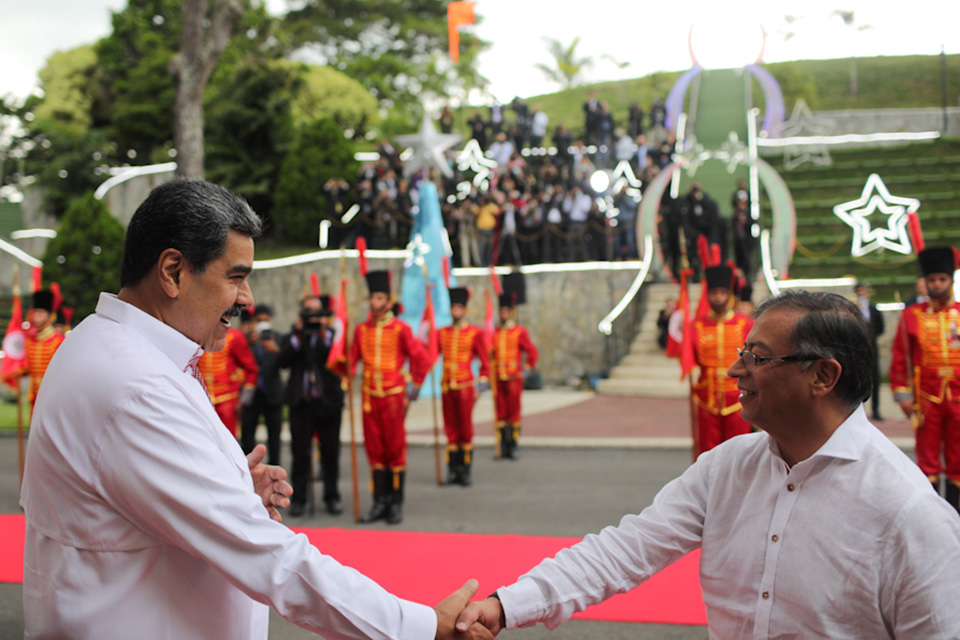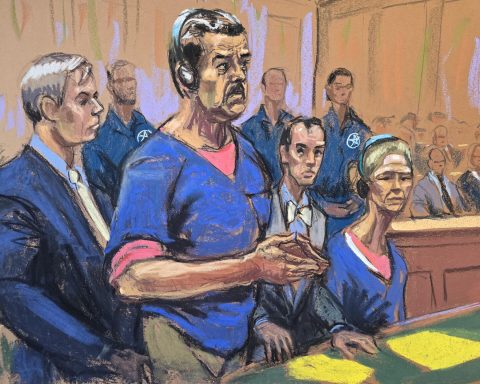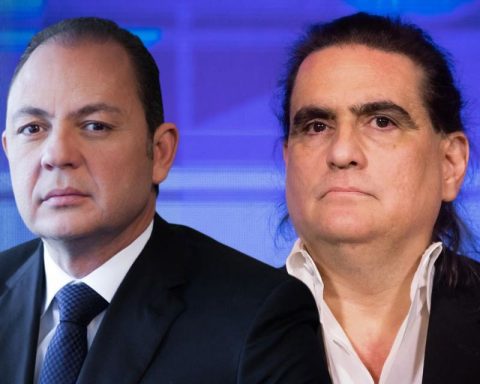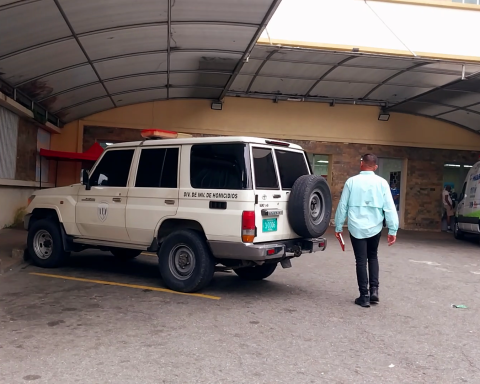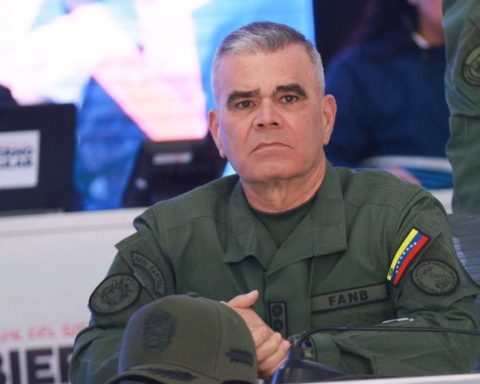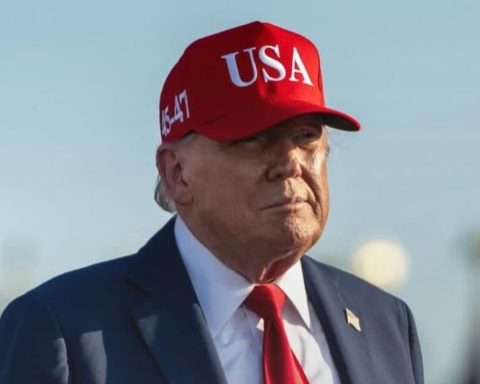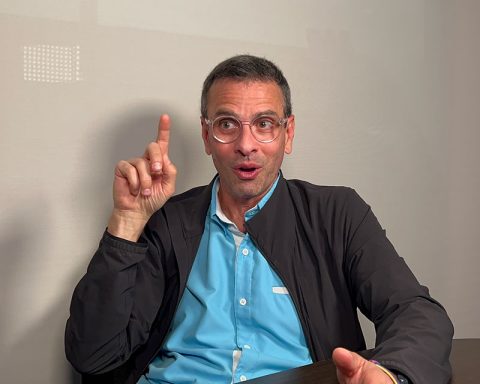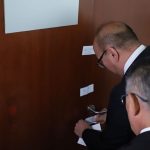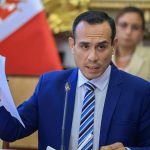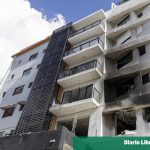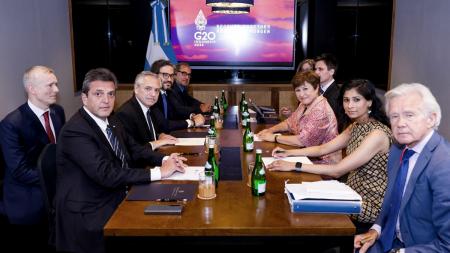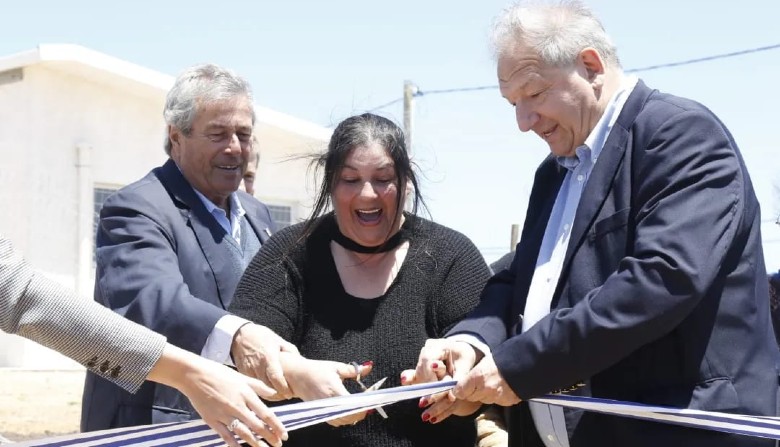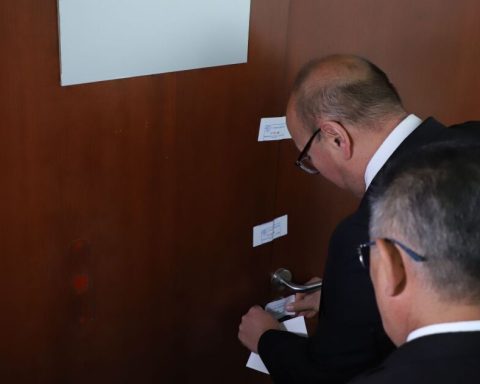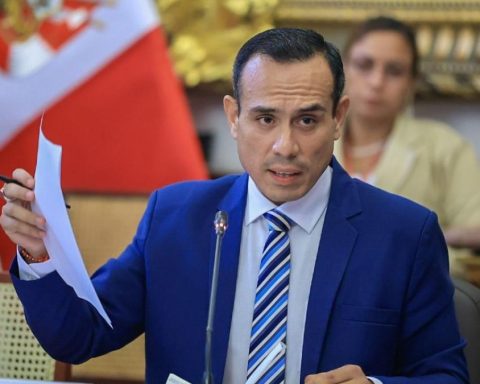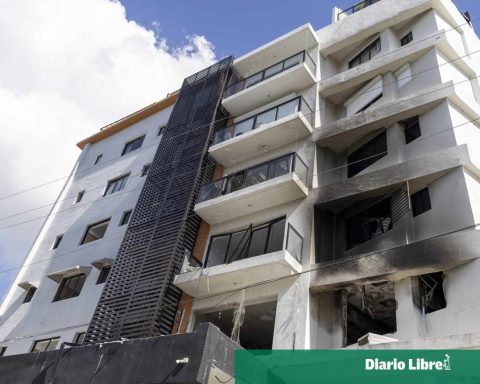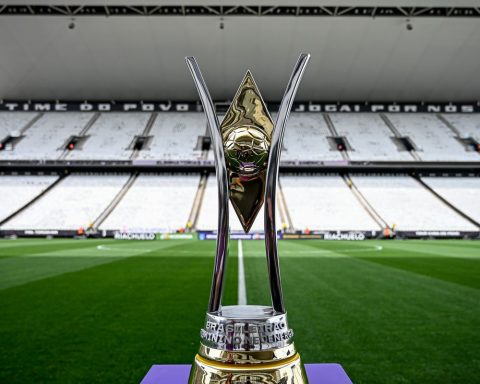The US government maintains the arrest request and criminal charges against the Venezuelan president. Part of the opposition questions that President Maduro seeks personal benefits “for free”, without making democratic concessions
Text: Gustavo Ocando Alex
The opposition to Chavismo seems willing to negotiate agreements on the easing of economic sanctions, better electoral conditions and coexistence pacts, but it does not seem to show the same openness to the initiative to withdraw a million-dollar reward offered by the United States government for the capture and prosecution of Nicolás Maduro.
It was the president of Colombia, Gustavo Petro, who proposed the idea after participating in a private meeting in Paris with the heads of the delegations for the negotiation between Chavismo and the opposition, the presidents of Argentina and France, as well as the Norwegian chancellor. , country guarantor of the dialogues.
According to the Colombian president, the US “has some variables to play” to promote political agreements in Venezuela and is the one who should, in his opinion, rectify the procedures against Maduro in the face of a fair presidential election in 2024.
“How can you hold a free election if there is a price on your head measured in millions of dollars for them to kill you?” the Colombian president claimed. Petro also proposed a general amnesty and the “unblocking” of the Venezuelan economy.
Two months after the Venezuelan opposition, the White House, and 50 other world governments denied Maduro the legitimate president, the US State Department published in March 2020 a reward offer of $15 million for information leading to the capture of the chavista leader.
“The Department of State is offering a reward of up to $15 million for information leading to the arrest or conviction of Maduro,” he said. Two and a half years ago, the government invited him to contact the nearest US embassy or consulate or the DEA office in his country.
Then-Secretary Mike Pompeo charged Maduro and 14 other officials of his administration with “narcoterrorism, corruption, drug trafficking and other criminal charges.”
United States Attorney General William Barr made the same announcement at a press conference attended by members of the Justice Department, the Department of Homeland Security and prosecutors from New York and Florida.
The reward notice is still in force and is still published on the pages of US federal government agencies, such as the Drug Law Enforcement Administration, better known as the DEA, for its acronym in English.
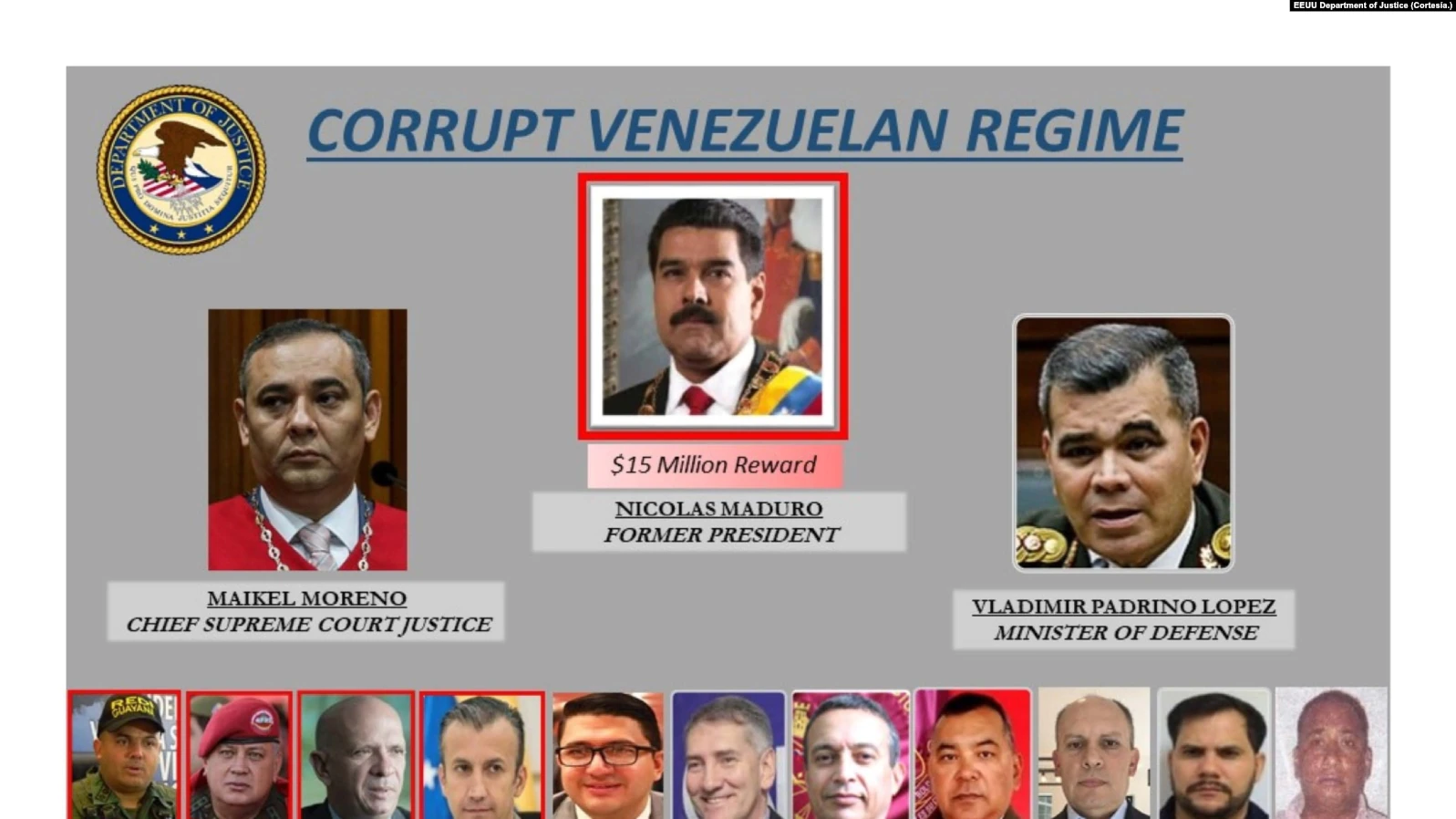
The US Department of Justice offers a reward of 15 million dollars for leaders of the “corrupt regime of Venezuela”.
Maduro’s file still describes him as “former president of Venezuela” and denounces his “usurpation of power.” He also points to him as the leader of a drug cartel identified as Los Soles and as being associated with guerrilla groups, such as the Revolutionary Armed Forces of Colombia (FARC).
The accusations against the Venezuelan president are not rhetorical. The attorney for the Southern District of New York formalized in March 2020 an indictment against him for drug terrorism, conspiracy to import cocaine, possession of weapons and destructive devices and conspiracy to possess them, the State Department recalled.
United States government officials, such as the ambassador to Venezuela James Story, have claimed the separation and independence of powers in their nation and have recalled that the president cannot give instructions to other institutions.
Spokesmen for the US government have stated, however, that the dialogue table in Mexico City is the ideal setting to discuss agreements. The memorandum signed in August 2021 by the ruling party and the opposition, with the facilitation of Norway, includes “political and social coexistence” in Venezuela as the fifth item on its agenda.
Despite the criminal charges and those offers of rewards against him in the United States, Maduro has traveled abroad twice: in September 2021, to participate in the summit of the Community of Latin American and Caribbean States (CELAC), in Mexico; and this month, to join the climate summit in Egypt.
Maduro, meanwhile, continues to advance his efforts to gain international recognition as president “in fact and in law,” according to analysts who have pointed out to the Voice of America.
Interpol, as the international Criminal Police organization is known, with 194 member countries, has not published any file for the arrest of Maduro.
*Read also: NGOs send 32 new cases to the ICC on crimes against humanity in Venezuela
Nothing is free in the Maduro case
Lauren Caballero, an expert in international relations and human rights, affirms that Petro’s proposal “may be controversial under the magnifying glass of maximalist sectors of the Venezuelan opposition,” but notes that “it is not in itself a preposterous proposal.”
The also specialist in government sciences points out that the processes of peaceful transition to democracy are usually the result of “negotiations that bring the parties in conflict closer together through agreements that offer guarantees to members of the regime.”
“No one is going to voluntarily hand over power if their own survival depends on it, it is even a matter of common sense,” he comments in an interview with VOA.
Caballero cited an old treatise on the art of war to warn that it is not wise to corner an enemy army to put its men in a situation where they must fight to safeguard their own existence, because there, “they become ferocious and unpredictable.” .
“The détente proposal formulated by the Colombian president makes an interesting strategic sense if it can be implemented intelligently,” he says.
Caballero recalls that the transitions in countries like Chile, Spain and Poland demanded “great sacrifices” on the part of the actors involved.
Alberto Pinochet, Chilean dictator, remained head of the Army after leaving the presidency, or the Polish coalition had to accept some parliamentarians where communism had reserved most of the seats, he gives examples.
“In Venezuela it has become clear that maximalism and the formula of total pressure have only served to increase political conflict and close the doors to a possible negotiated transition. Perhaps changing the schema can be more useful for such purposes, ”he observes.
In Venezuela, some opposition leaders question that Maduro aspires to have the economic sanctions suspended or the criminal charges against him without making concessions that result in redemocratization and reinstitutionalization.
Maduro cannot expect signs of good faith if he does not contribute anything to the reinstitutionalization of the country.”
Juan Pablo Guanipa, opposition leader
This is the case of Juan Pablo Guanipa, first vice president of Parliament elected in 2015, an institution that anti-Chavismo defends as the only legitimate one that prevails in the South American country.
“Nicolás Maduro has committed crimes against humanity and the victims have been Venezuelans. Justice in Venezuela does not exist because it is intervened by Nicolás Maduro himself. He now asks that all the restrictions that other governments have placed on him be removed for free, ”he explained to VOA.
Guanipa, director of one of the main opposition parties, Primero Justicia, wonders if there will be “awareness of the damage” of Chavismo to democracy and to Venezuelans.
“Maduro cannot expect signs of good faith if he does not contribute anything to the reinstitutionalization of the country and that happens, especially, due to the electoral conditions so that the vote and the country can be recovered in Venezuela,” he insists, finally calling for dialogue.
*Read also: Nicolás Maduro moves to advance towards the communal State with reform of seven laws
Resistance on several fronts
Several sectors of Venezuelan anti-Chavismo raised their voices when the United States announced, weeks ago, that it had eliminated an individual sanction against a cousin of Maduro’s wife and former treasurer of the state-owned PDVSA, as well as the exchange of two nephews of the presidential couple. convicted of drug trafficking by seven Americans.
The opposition to the Colombian government also recalled the reward offer against Maduro when he received Petro in his office in Caracas two weeks ago.
Senator María Fernanda Cabal, from the Democratic Center, recommended that he remind him of the “genocide” that the US justice system is looking for, while his colleague from the Alianza Verde party, Jonathan Pulido, advised him to rat on the Venezuelan president and “collect that amount” of the reward to pay for the controversial tax reform in his country, approved today.
The two friends look happy! @petrogustavo you are next to a very “valuable” subject, @NicolasMaduro for THE DEA it is worth $15,000,000.00 dollars! Collect that talk and we pay it to the tax ? pic.twitter.com/yJq67iQ19S
— Jota Pe Hernandez (@JotaPeHernandez) November 1, 2022
Petro’s initiative in Paris comes two months after an independent United Nations Mission concluded that Maduro and other Chavismo leaders, such as Diosdado Cabello, are responsible for “an orchestrated plan” to “repress dissent by committing crimes against humanity” in Venezuela.
The chief prosecutor of the International Criminal Court, Karim Khan, has also just asked the Preliminary Chamber of the body to allow him to resume his investigation into crimes against humanity in Venezuela due to the lack of progress by the local authorities.
Post Views: 68
